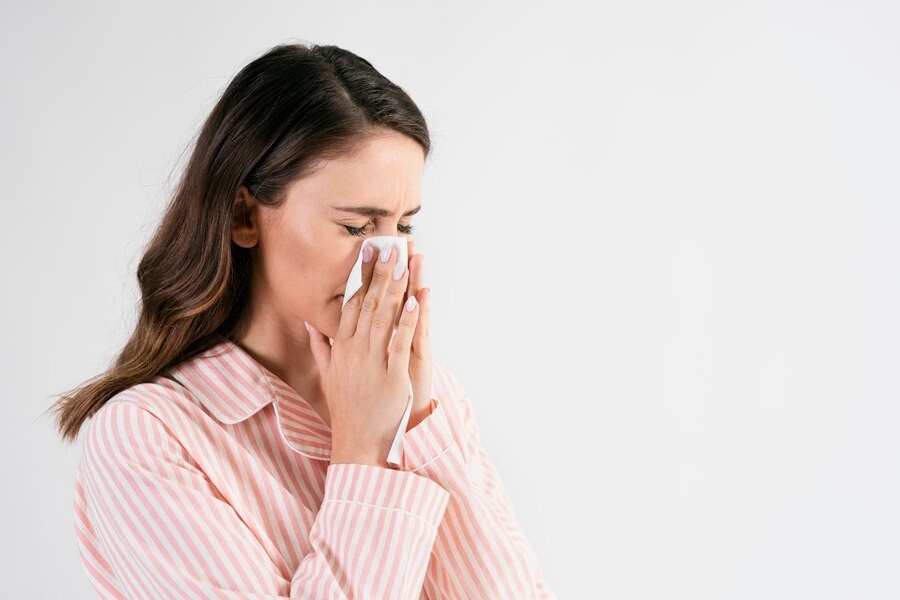Infections, whether viral, bacterial, or parasitic, are common causes of muscle pain throughout the body. For example, an influenza virus infection can cause fever, headache, and widespread muscle pain (myalgia).
Causes of muscle pain during illness
Muscle pain during illness is caused by the immune system's response to infection. When the body detects a virus or bacteria, the immune system produces inflammatory chemicals like histamine and cytokines.
Histamine and cytokines help widen blood vessels, allowing more white blood cells to reach the site of infection. This dilation of blood vessels increases blood flow to the infected area, resulting in localized heat and redness.
The pain and soreness experienced during illness are the results of the immune system's efforts to combat the infection. Although uncomfortable, it indicates that the body is attempting to fight germs and protect itself from further harm.
How to deal with muscle pain while sick
Several effective ways have been suggested to deal with muscle pain during illness, such as the flu, Covid-19, or other infections:
- Get enough rest
The body needs sufficient sleep to replenish energy and repair damaged tissue. Avoid engaging in excessive physical activity, as this can aggravate muscle pain.
- Apply warm or cold compresses
Alternating warm and cold compresses can treat muscle pain during illness. Warm compresses improve blood circulation and reduce muscle stiffness, while cold compresses can help reduce inflammation and swelling.
- Provide a light massage
A gentle massage can improve blood circulation and reduce muscle tension. Ensure the massage is done gently to avoid further injury.
- Take painkillers
Over-the-counter pain relievers like ibuprofen and paracetamol can help alleviate body pain caused by the flu or other diseases. Always follow the recommended dosage on the medicine package or your doctor's prescription. Avoid taking more than the recommended dose.
- Stay hydrated
When you're sick, your body loses more fluid through sweating, vomiting, or diarrhea. Fluid loss can cause electrolyte imbalances, manifesting as muscle weakness, cramping, or seizures. Good hydration helps the body fight infection, speeding up the recovery process. It also helps maintain electrolyte balance, regulate body temperature, protect sensitive tissues, and aid in nutrient transport
Suppose your muscle pain persists or is accompanied by other symptoms such as a high fever, difficulty breathing, or severe joint pain. In that case, you should see a doctor immediately for further evaluation.
If you need medical advice or consultation, you can either visit a doctor or make use of the consultation features that are available in the Ai Care application by downloading the Ai Care application from the App Store or Play Store.
Looking for more information about other diseases? Click here!
- Sean Edbert Lim, MBBS
Kristina Herndon, RN (2023). How to Relieve Body Aches When You’re Sick. Available from: https://www.verywellhealth.com/the-flu-and-body-aches-770313
Cleveland Clinic (2021). Muscle Pain. Available from: https://my.clevelandclinic.org/health/symptoms/17669-muscle-pain
Lana Barhum (2023). Myalgia: Causes and Treatments for Muscle Pain. Available from: https://www.verywellhealth.com/myalgia-overview-4584594
Cleveland Clinic (2023). Histamine. Available from: https://my.clevelandclinic.org/health/articles/24854-histamine
Cleveland Clinic (2023). Cytokines. Available from: https://my.clevelandclinic.org/health/body/24585-cytokines
John Hopkins Medicine. Ice Packs vs. Warm Compresses For Pain. Available from: https://www.hopkinsmedicine.org/health/treatment-tests-and-therapies/ice-packs-vs-warm-compresses-for-pain
Ivy Conrad, MSSGL (2022). Benefits of massage therapy. Available from: https://www.mayoclinichealthsystem.org/hometown-health/speaking-of-health/benefits-of-massage-therapy











